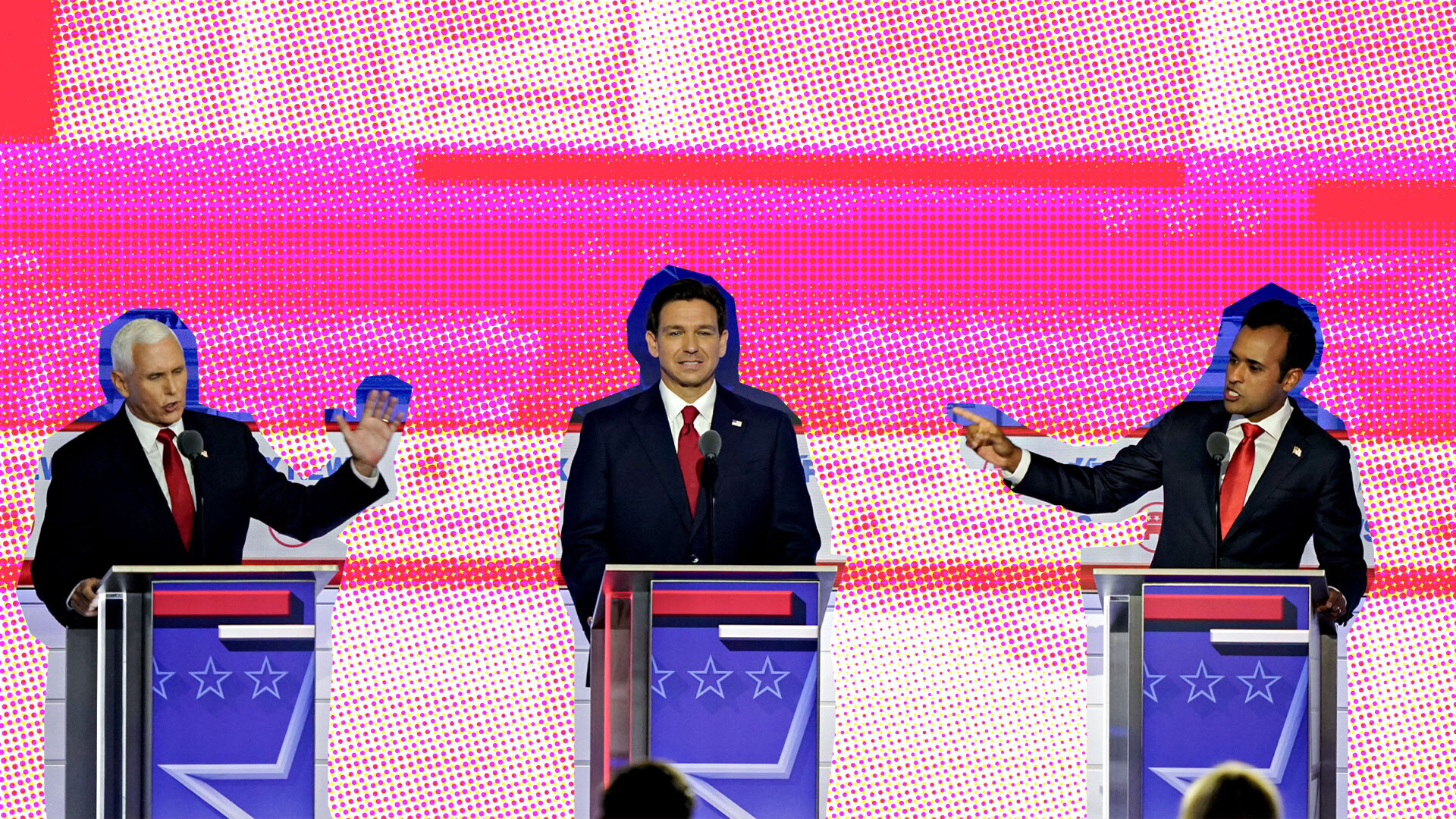Last month, I loved myself enough to miss the first GOP primary debate. So this month, accepting that modern political coverage is an exercise in self-loathing, I decided I hated myself enough to watch the second. The takeaway: We all need to learn to love ourselves more — especially the Republican Party.
It was a tepid and desperate night, more notable for who was absent than the seven people who polled well enough to show up. Without Trump, it was hard to understand why the debate mattered, but imagining him there was equally unappealing, given the sloppy, juvenile, senseless crosstalk generated by his would-be replacements. Even as Chris Christie and Ron DeSantis taunted Trump for his failure to appear, their weak and obviously scripted rejoinders made it clear that they wouldn’t have landed a shot on the current heavyweight for the nomination even if he had stood still to let them.
Instead, this round of Who Wants to Be an Authoritarian Dictator? featured an array of half-hearted commitments to blatantly unconstitutional promises: Christie offered to give direction to his Department of Justice to “clean up” cities (illegal and vague); DeSantis insisted that he would repeal an act of Congress (the ACA) unilaterally (illegal and wrong); Nikki Haley openly called for a military incursion on our biggest trading partner in violation of their sovereignty and a blatant act of war (illegal and stupid), and Vivek Ramaswamy said that he could and would get rid of the 14th Amendment guarantee to birthright citizenship because something, something diplomats’ kids (illegal and wtf).
And that was what came out of their mouths when they tried to answer questions.
For most of the night, everyone on stage jumped straight to their canned and practiced statements on entirely unrelated subjects, like we had all been launched into a dress rehearsal for a middle school mock debate.
There were no snappy lines, no new dynamics, no smart exchanges, and no contact with reality—just like the base wants it. Having been trained on endless grievance, GOP voters aren’t inspired by anything less than the complete and utter annihilation of their political enemies; regular old policy just won’t cut it anymore—not that anyone was offering it. And without Trump’s unique brand of bullying and bluster, these thin attempts at imitation are all that the alternatives can hope to give. Empty threats, wanton cruelties, deflated slogans, hollow promises: all of it offered and abandoned on the stage, the death rattles of a once-dignified political organization. It didn’t even matter that nothing the candidates said was possible or plausible; it only mattered that they couldn’t sell it.
The only thing this debate made abundantly clear is that there’s no replacement for Trump because the party faithful don’t want one. What was written off as a fluke in 2016 has become an unassailable truth in the run up to 2024: Trump is the life of the party—quite literally. No one else will receive his share of support, activate his voters, inspire his adherents, and nobody is waiting for some policy or vision that Trump is unable or unwilling to deliver. He is both the policy and the agent. He’s the beginning, and the end. Republicans are either going to win behind him or lose in front of him, but there’s no separating their fates from his.
It was a surprisingly bittersweet conclusion to reach as I’ve tried to sum up the suffering I endured in watching this debate. Despite all these years of calling for the end of the GOP, I always expected that it would be a fight, and against Trump, it will be. But what I saw on that stage wasn’t a party that needed to be razed; it was one that needed to be put down. At the end of the night, I didn’t fear the Republican Party; I pitied it.








































